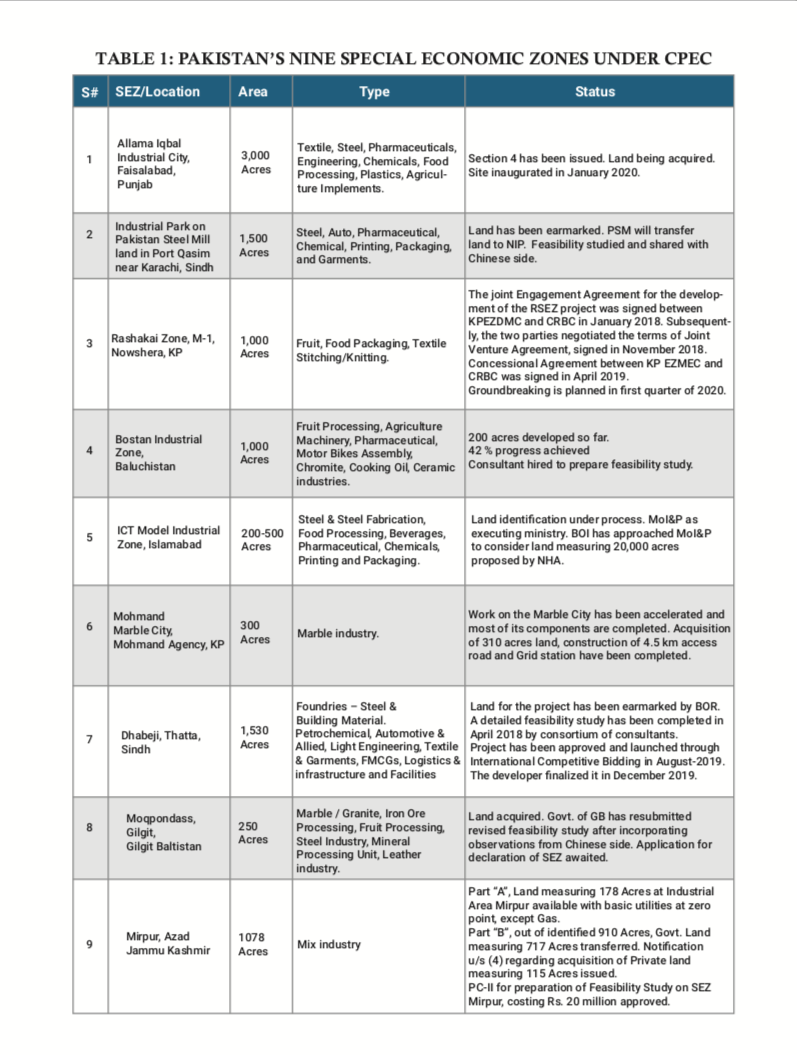Prime Minister Imran Khan on Friday said Pakistan's future lay in industrialisation, adding that his government was now focusing on sustainable growth.
Addressing the commercial launch of
Rashakai Prioritized Special Economic Zone in Nowshera, he said wealth creation is impossible with industrialisation.
"Also this economic zone comes under the China-Pakistan Economic Corridor (CPEC). This is a good thing for Pakistan because China has developed rapidly, and we can learn the most from their development."
The prime minister stated that industrialisation in Western countries was "old" and Pakistan could not learn from it. "But China has the most recent [experience with] industrialisation," he said, reiterating that Pakistan could learn a lot from its developed neighbour.
PM Imran also gave a "warning" to Khyber Pakhtunkhwa Chief Minister regarding the economic zone. "You told me that people are eager to buy this land [...] don't sell the lands. Lease them on lesser rates."
He argued that selling the land would make it turn into real estate and raise its price. "When land prices skyrocket, industries are unable to cope." The premier said he wanted the land to be used by those who wished to set up industries.
Commenting on the need for upping exports, PM Imran said that past governments did not focus on this area. "How can we increase our wealth if we don't export to the world? We can't become rich by selling wheat, rice and sugar."
He stated that China paid special attention to exports. "We have never paid attention to exports. So this Rashakai economic zone is a huge opportunity for us," he said, adding that authorities need to give preference to export-based industries.
The prime minister also lamented that Pakistan was not an "investor-friendly country".
"We have not removed the obstacles in their way. A person will only set up a business for profit, not for charity. It is the government's job to remove obstacles from investors' path."
He said China was now outsourcing their industries due to cheap labour. "We are trying to give them incentives to come to Pakistan. Our only problem is that we need to get rid of obstacles preventing investment."
The PM said his government was trying to provide incentives to attract investors.
PM Imran further said Pakistan had faced a tough time due to the debts incurred by previous governments. "As we were finally beginning to deal with this, the pandemic happened. Thankfully Pakistan was largely spared from the devastating effects of the pandemic."
He said his government had decided early on to not impose a lockdown, as the poor ultimately suffered from it. "If I had come under pressure and imposed a lockdown, perhaps we would be facing the same situation as India."
We took the decision to save our people and the economy, he said. "Now our opponents are amazed at the four per cent growth rate projection for the next fiscal year. They tell us we are lying."
Making a reference to his cricketing career, PM Imran said: "I was the captain that brought a neutral umpire. We are not ones to win with rigging."
He said large-scale manufacturing was showing growth and there had been improvement in the agriculture sector. "This time round there has been record output of rice, corn and wheat," he said, adding that this had an affect on other sectors.
"Good times are coming. I used to tell people to not worry, but they used to worry. Life is never a straight line."
He concluded his speech by saying that as the economy grows, there would be pressure on the current account. The current account has been in surplus for the past 10 months, he said. "But as the economy grows, we will require imports. So the fear is that it will put pressure on our current account."
He said that the government was now planning on sustainable growth so that it does not have to turn to the International Monetary Fund (IMF).
According to
Radio Pakistan, the Rashakai Prioritized Special Economic Zone is part of the CPEC cluster and is a flagship project of the KP government and KP Economic Zone Development and Management Company.
The zone spreads over one thousand acres, which is linked with CPEC route on M-I Motorway and other districts of the province, making the project strategically significant.
The construction of the zone is being carried out in collaboration with China's state enterprise, China Road and Bridge Corporation, and KP Economic Zone Development and Management Company.
The project will provide employment opportunities to about 200,000 people in the area directly and indirectly.











